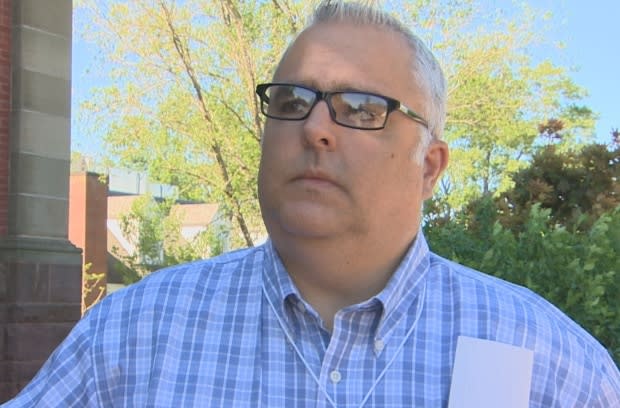Province looks to wood as heat source for public buildings
The provincial government has identified about 100 public buildings that could be heated by wood in the future.
Exploring the use of district heating, or heat networks, fuelled by low-grade wood was one of the recommendations in University of King's College president Bill Lahey's review on forestry practices.
Among other things, the report called for a major reduction in clear cutting on Crown land and a shift in favour of ecological forestry.
Julie Towers, Lands and Forestry deputy minister, told a crowd of about 100 people gathered Tuesday in Truro for a meeting on ecological forestry that six public buildings will be converted ahead of the next heating season as a pilot project.

To underscore just how serious the province is about the plan, Towers said the file involves 11 provincial government departments and ACOA. The province is using Prince Edward Island and Vermont as examples to follow during the process.
A call to end biomass
Lands and Forestry Minister Iain Rankin told reporters the heating systems would use boilers and be fuelled by products that wouldn't make it to sawmills for timber or saw logs. Heating systems he's toured have 90-95 per cent efficiency, said Rankin.
The minister said the tender for the six buildings, which the government is not identifying at this time, would have the successful bidder design, build, operate and maintain all aspects of the heating system.
While the intent is to provide a new business opportunity for forestry operators, Rankin said district heating would not come close to addressing the glut of chips that would become available should the Northern Pulp mill in Pictou County stop operating next year.
"You wouldn't have enough public buildings to even come close to that," he said.
Ray Plourde, Ecology Action Centre wilderness co-ordinator, said his organization is open to district heating if it's using waste such as bark and thinnings, but he said the biomass generators in Liverpool and Port Hawkesbury should be shut down in conjunction.
"We think the forest has already been pounded pretty heavily for pulp and paper and lumber and other things and adding damage upon damage by burning trees, particularly for electricity, is foolish in this age of climate change and it's wasteful of our already beleaguered forests."

Tuesday's meeting was dubbed as a chance for people consulted during preparation of the Lahey report to hear about the government's progress to date on implementing its recommendations.
Rankin reiterated plans to have a new new forest management guide in place by the end of the year. Participants then broke into working groups to discuss eight components of the report:
Forest management guide.
High production forestry.
Natural disturbance regimes.
Old forest.
Outcomes-based forest management.
Reporting on the state of the forest.
Small scale wood energy initiative.
Species at risk program renewal.
Rankin and Towers both said one of the aims of the meeting was to make the department more transparent about what it's doing and include people along the way to gather input and feedback.
"We're not saying, 'Here's all the answers,'" Towers said during her presentation.
"We're saying, 'Here's the directions we're heading, what do you think?'"

Jeff Bishop, executive director of Forest Nova Scotia, called the meeting a good first step as the government works to do a better job keeping people in the loop before decisions are made.
While there were concerns within the industry when the report was first released, Bishop said that has eased as people have had time to digest the recommendations and talk with Lahey and others who produced the report.
"Broadly, there's an understanding that they think the spirit of what is intended there is achievable."

One area that did raise concern from some in attendance Tuesday was the fact the work is centring on Crown land.
While the minister has said that's for the sake of making some changes as soon as possible, Andy Kekacs, executive director of the Nova Scotia Woodlot Owners and Operators Association, said they're taking steps now to work with private landowners.
Kekacs said a lot of education about the Lahey report needs to be provided for people his organization and others like it serve and they're starting a family forestry centre to promote ecological forestry management to landowners.
"We need to help them begin to understand what these recommendations mean for their own personal holdings."
MORE TOP STORIES


